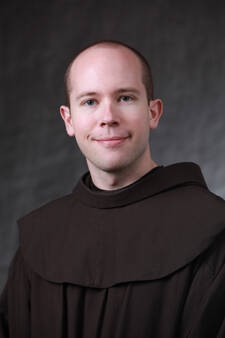Sainthood is a complicated and sometimes controversial subject. The significance of formally enrolling someone in the canon of saints is disputed, and the role of finances and ecclesiastical politics has over the centuries cast a shadow of incredulity over the proceedings.
Coinciding with Pope Francis’ first visit to the United States, questions surrounding the meaning and purpose of this sort of official recognition have surfaced in at least two instances. Both cases center on North American Franciscans; and though they were centuries and a continent apart, both have attracted considerable interest and controversy.
On the west coast there is Father Junípero Serra, the 18-century missionary sometimes called the “Apostle to California.” As a recent article in this magazine (“Serra’s Sainthood,” 8/31) explained, in the wake of Pope Francis’ surprise announcement that he would canonize Serra during his visit in September, some Native American groups have protested, accusing Serra of maltreating the native peoples he encountered in the 1700s.
On the east coast there is Father Mychal Judge, the New York City Fire Department chaplain (and a friar of my Franciscan province) who died on Sept. 11, 2001, as he served first responders in a ministry of presence. Although personal support and veneration for Judge have continued to grow during the 14 years since his death, some people remain uncomfortable with reports that Judge was a recovering alcoholic and may have been gay (though committed to his religious vows).
Were these friars saints? Should they be canonized?
Certainly, the two situations are very different. In Serra’s case the concern is about alleged wrongdoing committed against the native peoples of California. Judge’s case centers on the discomfort some people have with the complex humanity his story reveals.
In truth, neither friar was perfect. But then again, that is not what it means to be a saint. Every saint was also a sinner, an imperfect and finite creature brought into existence by a loving God. Whether we are talking about Elizabeth Ann Seton and Francis of Assisi, or Serra and Judge, we are talking about people who responded—the best way they knew how—to God’s call to live the Gospel and fulfill their baptismal vocation.
The Catechism of the Catholic Church explains: “By canonizing some of the faithful, i.e., by solemnly proclaiming that they practiced heroic virtue and lived in fidelity to God’s grace, the Church recognizes the power of the Spirit of holiness within her and sustains the hope of believers by proposing the saints to them as models and intercessors” (No. 828). This summary makes no mention of preclusive past mistakes or lives of absolute perfection. Nor does the declaration that they practiced “heroic virtue” guarantee that each would-be saint never indulged in any vice in a moment of human weakness. To claim such a state would necessarily exclude everybody from the canon (maybe exempting Mary, the Mother of God).
Rather than resort to black-and-white thinking that paints Serra and Judge as either saints or sinners, perfect or imperfect, we need to readjust our perspective. Saints are held up as models of Christian living, as spiritual mentors and intercessors reminding us of our baptismal call. The catalog of official saints provides a rich diversity of Christian guides, and different saints appeal to different people.
Serra will soon be added to that roll, but what about Judge? Should he also be added? I don’t know. But I do think that Judge provides a genuinely inspiring model of selfless Christian service. By all accounts he was a friar who tirelessly served the people of God, including many of those few others would serve: the homeless, people with H.I.V./AIDS, the imprisoned, the addicted, the disabled. And he served those who risked their lives daily to help others, including firefighters, ultimately giving his own life in similar service.
It is the fact that both Serra and Judge were complex individuals that makes them so appealing. We should not whitewash Serra’s relationship with native peoples but acknowledge the truth that saints can also be deeply flawed persons. We should hold up Judge’s heroic ministry, as well as call to mind his own struggle for sobriety. We should look to these deeply relatable Christians as models of God’s grace working where we at times least expect it, rather than in the false perfection we desire in the saints of our imagination.
Junípero Serra and Mychal Judge, pray for us!








